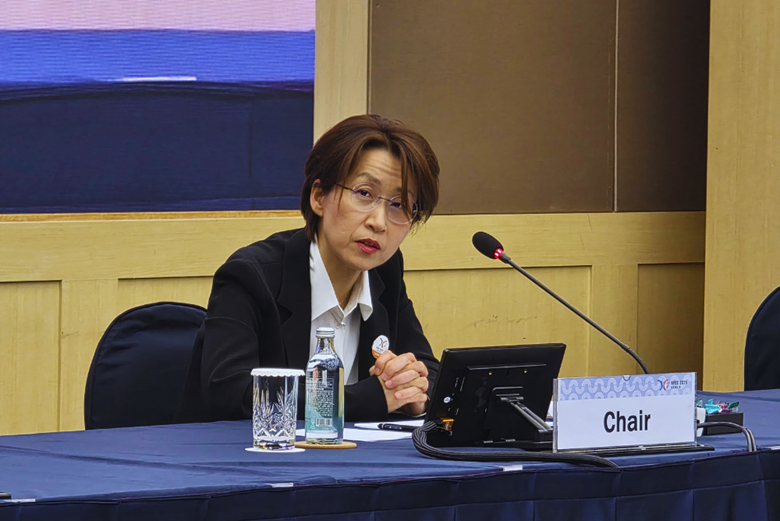APEC Officials Propel AI and Demographic Agendas

As global uncertainties mount and long-term challenges reshape the economic landscape, APEC economies gathered in Jeju this week to accelerate collaboration on connectivity, innovation and prosperity.
At their two-day meeting, senior officials advanced region-wide efforts on emerging priorities such as artificial intelligence, demographic transformation and economic integration, building on recent ministerial meetings and stakeholder dialogues.
Chairing the meeting, Ambassador Seongmee Yoon emphasized Korea’s vision for a forward-looking and action-oriented APEC agenda this year.
“Korea’s priorities this year reflect the urgent need to future-proof our economies,” Ambassador Yoon said. “We are advancing innovation not just in technology, but in how we cooperate, how we trade and how we prepare our people for what’s next. We are strengthening connections across borders, across sectors and between generations. And we are pursuing prosperity that benefits all the people in the region.”
“This meeting in Jeju is where we take those ideas and turn them into deliverables,” she added. “As we move toward the APEC Economic Leaders’ Week in Gyeongju, Korea is committed to driving meaningful, cooperative outcomes that benefit the whole APEC region.”
The meeting opened with updates from key stakeholder groups, including the APEC Business Advisory Council, the Senior Finance Officials’ Meeting, the Pacific Economic Cooperation Council and the APEC Study Centers Consortium.
Senior officials reviewed outcomes from recent ministerial meetings on ocean sustainability and human resources development, where ministers underscored the need for resilient labor systems and sustainable marine economies. Ministerial meetings on education and trade will follow on 14 and 15–16 May, respectively.
They also considered the next steps for Korea’s flagship deliverables, including the proposed APEC AI Initiative, which outlines a region-wide approach to harnessing artificial intelligence for inclusive and sustainable growth. The initiative promotes a shared outlook, capacity building and investment in sustainable AI infrastructure.
Additionally, Korea’s proposed Collaborative Framework on Demographic Changes was discussed, aiming to help economies address the implications of declining fertility rate and aging populations.
“APEC’s strength lies in its ability to bring economies together to tackle profound challenges without losing sight of practical outcomes,” said Eduardo Pedrosa, Executive Director of the APEC Secretariat.
“In Jeju, we’re seeing that in action; real collaboration on the future of artificial intelligence, on adapting to demographic transitions and on strengthening economic integration. These are not abstract goals. They’re essential to building a region that is more competitive, more connected and more resilient.”
The Committee on Trade and Investment reported progress on economic integration in the region, trade facilitation and the inclusive growth agenda. Discussions also covered the evolution of APEC’s structural reform priorities, services competitiveness and the transition from informal to formal economies.
Ambassador Yoon encouraged officials to continue building consensus and delivering tangible results ahead of upcoming sectoral ministerial meetings and APEC Economic Leaders’ Week.
“Our work here lays the groundwork for impactful deliverables in Gyeongju,” she concluded. “Let us move forward with clarity, urgency and a commitment to deliver on our vision.”
For more information or media inquiries, please contact:
[email protected]

